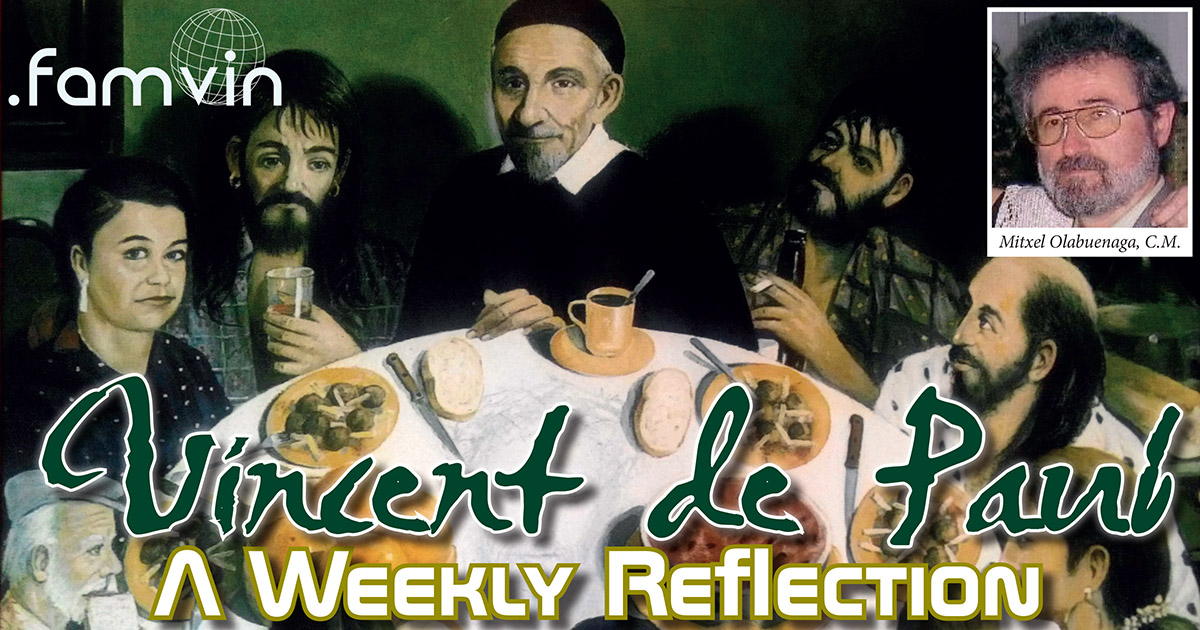“To be true Daughters of Charity you must do what the Son of God did when He was on earth. And what did He do mainly? […] He worked constantly for His neighbor, visiting and healing the sick and instructing the ignorant for their salvation. How fortunate you are, Sisters, to be called to a state of life so pleasing to God!” (CCD IX, conference 2).
“You’re going to do what the Son of God did on earth, for He came only to give life to the world, and you’re going to give life to those poor persons who are not only physically ill but spiritually as well. What a happiness to go to lay these foundations and establish the Company of Charity in such a great town among such good people!” (CCD X, conference 76).
Vincent de Paul
Reflection:
- Let’s start with the ending: “establish the charity.” A term (Charity) that will stick forever to the Daughters of Mr. Vincent. A name that will define the women who, breaking the traditional rule of the “cloister,” will address the misery of the Parisian neighborhoods “smelling of sheep.” Little was left for the people to call this activity “the Charity of the Daughters of Mr. Vincent.”
- And all this in order to carry out the purpose of the Institute: “to do what the Son of God did on earth.” How do you summarize this statement?: “Working constantly for the neighbor” and this unfolds “visiting and healing the sick and instructing the ignorant for their salvation.” VISIT, HEAL, INSTRUCT… the sick and ignorant as two paradigmatic forms of “poverty.”
- This situation derives from the actions of Jesus of Nazareth (who “came only to give life to the world”) and, with this, we discover that poverty places the person who suffers on the border of death. Accompanying (“evangelize”) [those who would] to leave this situation is at the center of the action of the Church, of any of the Vincentian institutions because we are called to Life.
- This dedication should motivate not so much an external satisfaction as it should make happy those who have been called to exercise it. To achieve this happiness is, in essence, the main purpose of each of the Institutions that practice Charity from a believer’s perspective. To make others happy was what Jesus of Nazareth did in his public life, and for this he endeavored to be happy himself.
Questions for dialogue:
- Are we happy working in our ministries?
- Do our Communities reflect a happy life?
- Do we have Community Projects that encourage this reality?
- What do we put in the middle of our actions: the Institution, the Church, Jesus Christ…?
- Are our ministries spaces of Life?
Mitxel Olabuenaga, C.M.








0 Comments